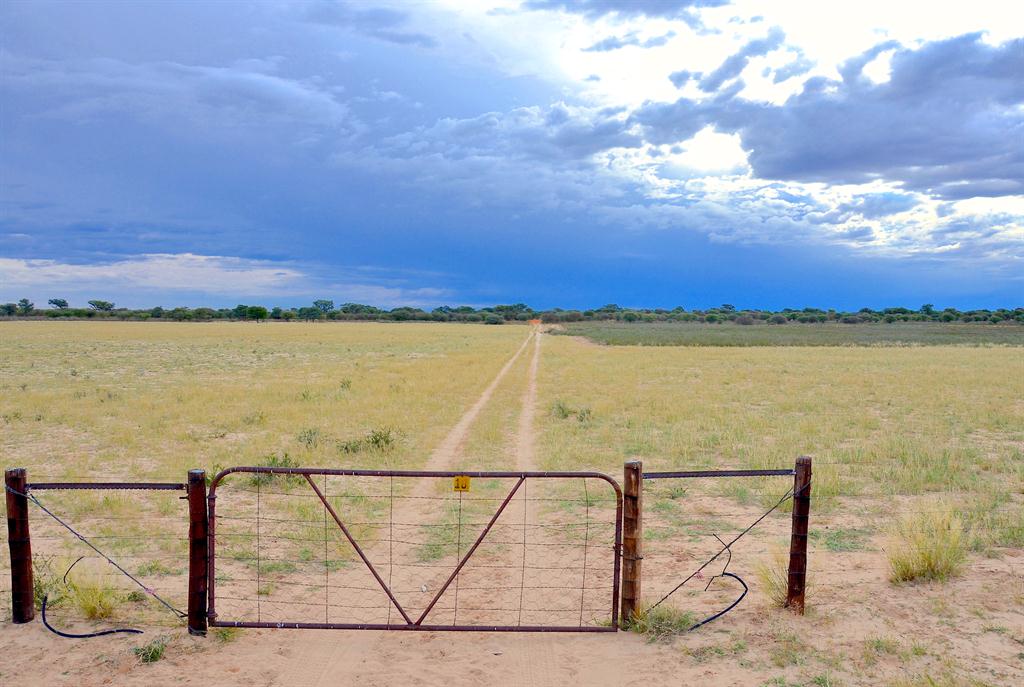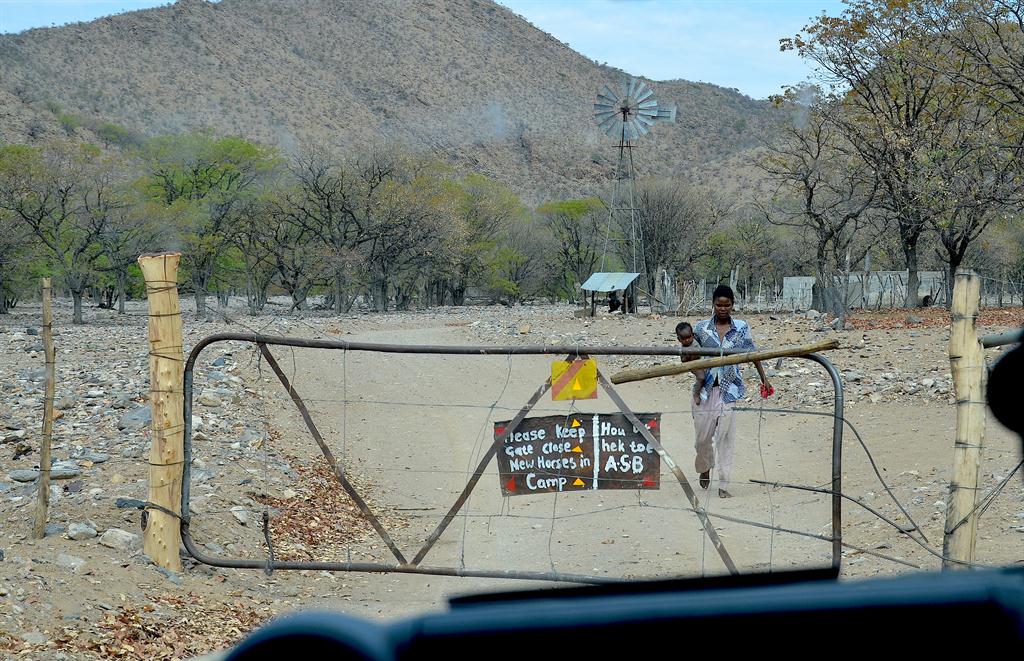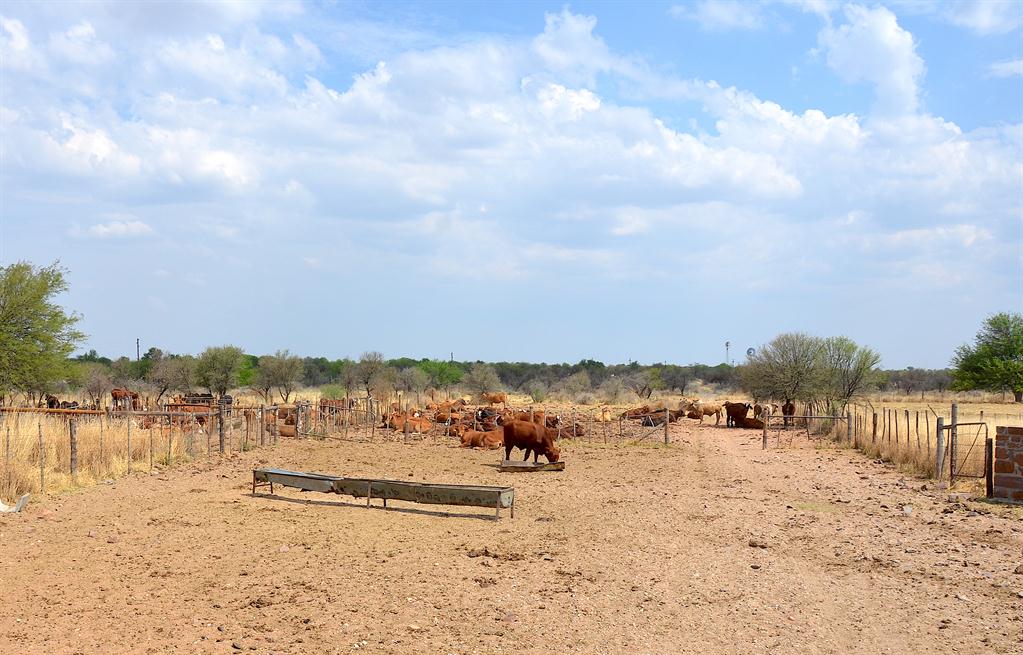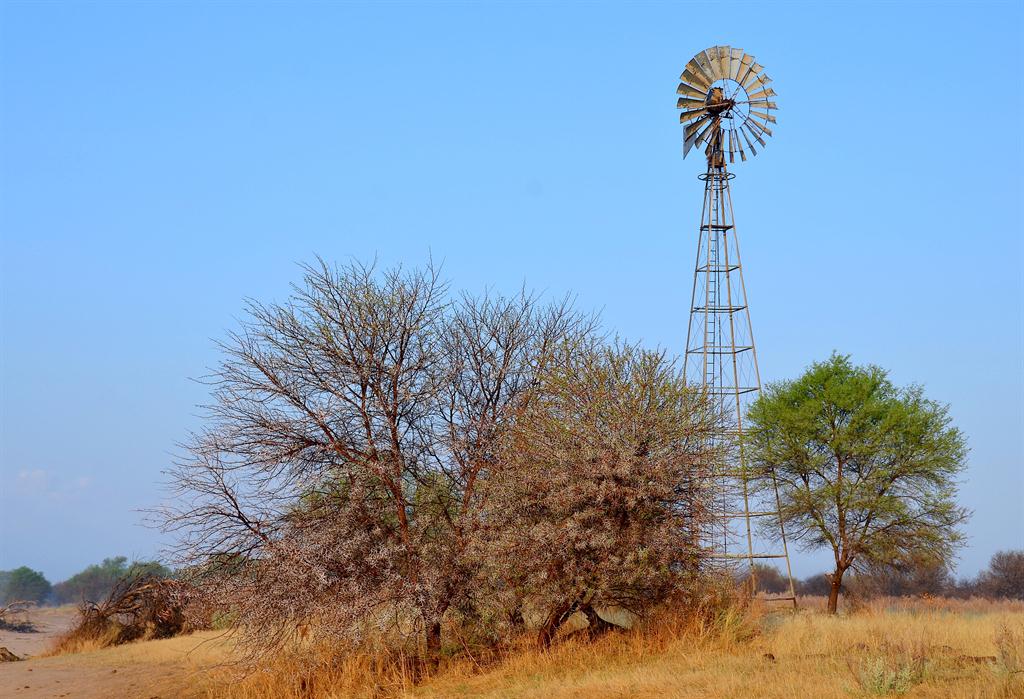Little joy for landless two years after conference
JANA-MARI SMITH
WINDHOEK
With yesterday marking two years since the end of the country's second national land conference, the scorecard on how the 40 resolutions from this landmark gathering have been implemented is a mixed bag, with experts warning that resentment is building among the landless majority.
This is because there is a perception that only a few previously disadvantaged people have benefitted from the land reform process, and that resettlement farms have been dished out to those in influential positions.
“The land conference could not resolve the land question and to expect this from a conference would be completely unrealistic,” professor Henning Melber said. On the issue of restitution of land, Melber has pointed out that fewer than 5 000 predominantly white commercial farmers own 48% of the land in Namibia, while 35% is reserved for communal use and the state holds another 17%.
“There must be an understanding of the fact that land reform is a difficult process and it is a costly process. However, this is a necessary process too, for reasons of political and economic stability,” Willem Odendaal, a consultant to the Legal Assistance Centre's Land, Environment and Development Project (LEAD) said recently. Odendaal cautioned that a post-mortem of how the implementation of the 40 resolutions taken in 2018 have fared has to be measured against the backdrop of funding challenges as well as the pandemic.
He added that acquiring land is the easy part and supported by Namibian legislation.
However, land reform “does not end at the redistribution process.
Its success depends on whether people can make a living off the land once they have acquired it as well as the support and tenure security they can get afterwards”, Odendaal underlined.
Melber and Odendaal agree that although the resolutions were a step in the right direction and some have already been delivered on, the resolutions tried to accommodate a lot of crosscutting perspectives and could have been more concise and coherent.
Melber said the run-up to the second national land conference was “marred by competing political approaches, which were more divisive than unifying, which damaged the overall general aim”.
Yet all was not lost, as the conflict was a catalyst “that helped to advance matters” on some issues, including ancestral land claims, he said.
Odendaal added that apart from the issue of ancestral lands, other actions have taken place, including the removal of illegal fences in communal areas.
Melber pointed out that some of the resolutions, such as those on foreign land ownership, were violated at the same time they were adopted.
Hot topics
Experts say efforts to tackle key land issues since independence have been mixed.
Odendaal said although land has been redistributed, “it is arguably not enough and it also hasn't reached enough of its intended target audience, the poor and the landless”.
He added that colonialism's legacy of land dispossession and discrimination, as well as apartheid, is “still very much in many people's minds”.
“While some significant land reform has taken place since independence, many people remain unhappy about what they regard as the slow process of land reform.”
Melber noted that land remains a “hot potato” that government is reluctant to touch.
“But by ignoring a problem, it does not vanish.”
He highlighted that the debate over how Namibia's constitutional principles can be not only an obstacle but also offer a tool has made progress and offers some useful strategies “that should be applied more vigorously”.
In a paper published in June, Odendaal writes that given that ancestral land claims have no statutory basis or case precedent in Namibian law, the Namibian Constitution, international law and comparative case law could in principle provide the necessary legal guidance for ancestral land claims in Namibia.
He wrote that ancestral land claims are not an unfamiliar concept and have an established foundation in both comparative and international law and that ancestral land claims also find favour in the legal pluralistic character of the Namibian Constitution.
“Dismissing ancestral land claims because they raise uneasy political questions should not exclude the possibility that the law, if developed to allow ancestral land claims, could complement and strengthen the existing land reform programme by securing the land rights that so many of Namibia's minority and marginalised indigenous peoples still do not have.”
Melber cautioned that the issue of land will remain a thorn in the country's side as long as its distribution remains skewed; a visible reminder of the colonial era and its lasting impact.
“That this perspective allies only to parts of Namibia's population adds to the complications,” he said.
In a paper published earlier this year, Melber, under the title 'Righting a Wrong', argued that it is “high time to return land to dispossessed communities”.
He argues that as a former colonial power “guilty of terrible bloodshed, Germany should contribute to making that happen”.
Resentment building
Odendaal warned that resentment is building on the land reform topic as a result of the perception that “only a few previously disadvantaged people have benefitted from the land reform process”, and that people in influential positions have benefitted from acquiring resettlement farms.
“By making the poor and landless less of a priority for resettlement defeats the purpose of government's land reform policy. Farmworkers should be considered as key beneficiaries in the resettlement process. They have acquired good skills, but they are often left without tenure security when a farm is sold. This seems a waste of experience.”
Moreover, he said the flawed perception that land equals riches must be addressed.
“Poor post-resettlement support in terms of access to loans, training and access to markets remains very problematic for many new resettlement and affirmative action farmers. Also, government has not really been able to effectively combine land reform policy with agricultural policy that could provide food security.”
Drought, climate change and other factors are increasingly battering the agricultural sector, and its contribution to the GDP continues to decrease.
“Land reform should be integrated with agricultural growth,” Odendaal said.
Both Melber and Odendaal are positive about the recent integration of agriculture and land reform under one ministry, which could see the realisation of policy changes in the right direction.
Resolutions 'vague'
Pablo Gilolmo Lobo's paper titled 'In the Wake of the Namibian Second National Land Conference' noted that despite the hefty resolutions, it could be “concluded that the resolutions were vague with regards to the burning land question in Namibia.”
He warned that a solution to the land question could take years or decades “as was the case with the resolutions adopted at the 1991 conference.”
Still, he wrote that the widespread demand for an answer to the land question could mean that eventually “effective and extensive land redistribution will finally take place in one way or another.”
“Land is belonging and symbolises home. It does so in Namibia for different groups of people who occupied and occupy land at different times,” Melber said.
He said land is crucial to communities robbed of their land as much as for those who now legally occupy the land.
“To reconcile the two perspectives is almost impossible and contributes to the socio-political problems vested in the ownership of land.”
He argued that since many land transactions took place since the original wave of appropriation by German and South African colonisers “those would be the most obvious inroads to find a solution in a retransfer of ownership to those who were forced into reserves and off their land”.
WINDHOEK
With yesterday marking two years since the end of the country's second national land conference, the scorecard on how the 40 resolutions from this landmark gathering have been implemented is a mixed bag, with experts warning that resentment is building among the landless majority.
This is because there is a perception that only a few previously disadvantaged people have benefitted from the land reform process, and that resettlement farms have been dished out to those in influential positions.
“The land conference could not resolve the land question and to expect this from a conference would be completely unrealistic,” professor Henning Melber said. On the issue of restitution of land, Melber has pointed out that fewer than 5 000 predominantly white commercial farmers own 48% of the land in Namibia, while 35% is reserved for communal use and the state holds another 17%.
“There must be an understanding of the fact that land reform is a difficult process and it is a costly process. However, this is a necessary process too, for reasons of political and economic stability,” Willem Odendaal, a consultant to the Legal Assistance Centre's Land, Environment and Development Project (LEAD) said recently. Odendaal cautioned that a post-mortem of how the implementation of the 40 resolutions taken in 2018 have fared has to be measured against the backdrop of funding challenges as well as the pandemic.
He added that acquiring land is the easy part and supported by Namibian legislation.
However, land reform “does not end at the redistribution process.
Its success depends on whether people can make a living off the land once they have acquired it as well as the support and tenure security they can get afterwards”, Odendaal underlined.
Melber and Odendaal agree that although the resolutions were a step in the right direction and some have already been delivered on, the resolutions tried to accommodate a lot of crosscutting perspectives and could have been more concise and coherent.
Melber said the run-up to the second national land conference was “marred by competing political approaches, which were more divisive than unifying, which damaged the overall general aim”.
Yet all was not lost, as the conflict was a catalyst “that helped to advance matters” on some issues, including ancestral land claims, he said.
Odendaal added that apart from the issue of ancestral lands, other actions have taken place, including the removal of illegal fences in communal areas.
Melber pointed out that some of the resolutions, such as those on foreign land ownership, were violated at the same time they were adopted.
Hot topics
Experts say efforts to tackle key land issues since independence have been mixed.
Odendaal said although land has been redistributed, “it is arguably not enough and it also hasn't reached enough of its intended target audience, the poor and the landless”.
He added that colonialism's legacy of land dispossession and discrimination, as well as apartheid, is “still very much in many people's minds”.
“While some significant land reform has taken place since independence, many people remain unhappy about what they regard as the slow process of land reform.”
Melber noted that land remains a “hot potato” that government is reluctant to touch.
“But by ignoring a problem, it does not vanish.”
He highlighted that the debate over how Namibia's constitutional principles can be not only an obstacle but also offer a tool has made progress and offers some useful strategies “that should be applied more vigorously”.
In a paper published in June, Odendaal writes that given that ancestral land claims have no statutory basis or case precedent in Namibian law, the Namibian Constitution, international law and comparative case law could in principle provide the necessary legal guidance for ancestral land claims in Namibia.
He wrote that ancestral land claims are not an unfamiliar concept and have an established foundation in both comparative and international law and that ancestral land claims also find favour in the legal pluralistic character of the Namibian Constitution.
“Dismissing ancestral land claims because they raise uneasy political questions should not exclude the possibility that the law, if developed to allow ancestral land claims, could complement and strengthen the existing land reform programme by securing the land rights that so many of Namibia's minority and marginalised indigenous peoples still do not have.”
Melber cautioned that the issue of land will remain a thorn in the country's side as long as its distribution remains skewed; a visible reminder of the colonial era and its lasting impact.
“That this perspective allies only to parts of Namibia's population adds to the complications,” he said.
In a paper published earlier this year, Melber, under the title 'Righting a Wrong', argued that it is “high time to return land to dispossessed communities”.
He argues that as a former colonial power “guilty of terrible bloodshed, Germany should contribute to making that happen”.
Resentment building
Odendaal warned that resentment is building on the land reform topic as a result of the perception that “only a few previously disadvantaged people have benefitted from the land reform process”, and that people in influential positions have benefitted from acquiring resettlement farms.
“By making the poor and landless less of a priority for resettlement defeats the purpose of government's land reform policy. Farmworkers should be considered as key beneficiaries in the resettlement process. They have acquired good skills, but they are often left without tenure security when a farm is sold. This seems a waste of experience.”
Moreover, he said the flawed perception that land equals riches must be addressed.
“Poor post-resettlement support in terms of access to loans, training and access to markets remains very problematic for many new resettlement and affirmative action farmers. Also, government has not really been able to effectively combine land reform policy with agricultural policy that could provide food security.”
Drought, climate change and other factors are increasingly battering the agricultural sector, and its contribution to the GDP continues to decrease.
“Land reform should be integrated with agricultural growth,” Odendaal said.
Both Melber and Odendaal are positive about the recent integration of agriculture and land reform under one ministry, which could see the realisation of policy changes in the right direction.
Resolutions 'vague'
Pablo Gilolmo Lobo's paper titled 'In the Wake of the Namibian Second National Land Conference' noted that despite the hefty resolutions, it could be “concluded that the resolutions were vague with regards to the burning land question in Namibia.”
He warned that a solution to the land question could take years or decades “as was the case with the resolutions adopted at the 1991 conference.”
Still, he wrote that the widespread demand for an answer to the land question could mean that eventually “effective and extensive land redistribution will finally take place in one way or another.”
“Land is belonging and symbolises home. It does so in Namibia for different groups of people who occupied and occupy land at different times,” Melber said.
He said land is crucial to communities robbed of their land as much as for those who now legally occupy the land.
“To reconcile the two perspectives is almost impossible and contributes to the socio-political problems vested in the ownership of land.”
He argued that since many land transactions took place since the original wave of appropriation by German and South African colonisers “those would be the most obvious inroads to find a solution in a retransfer of ownership to those who were forced into reserves and off their land”.








Comments
Namibian Sun
No comments have been left on this article